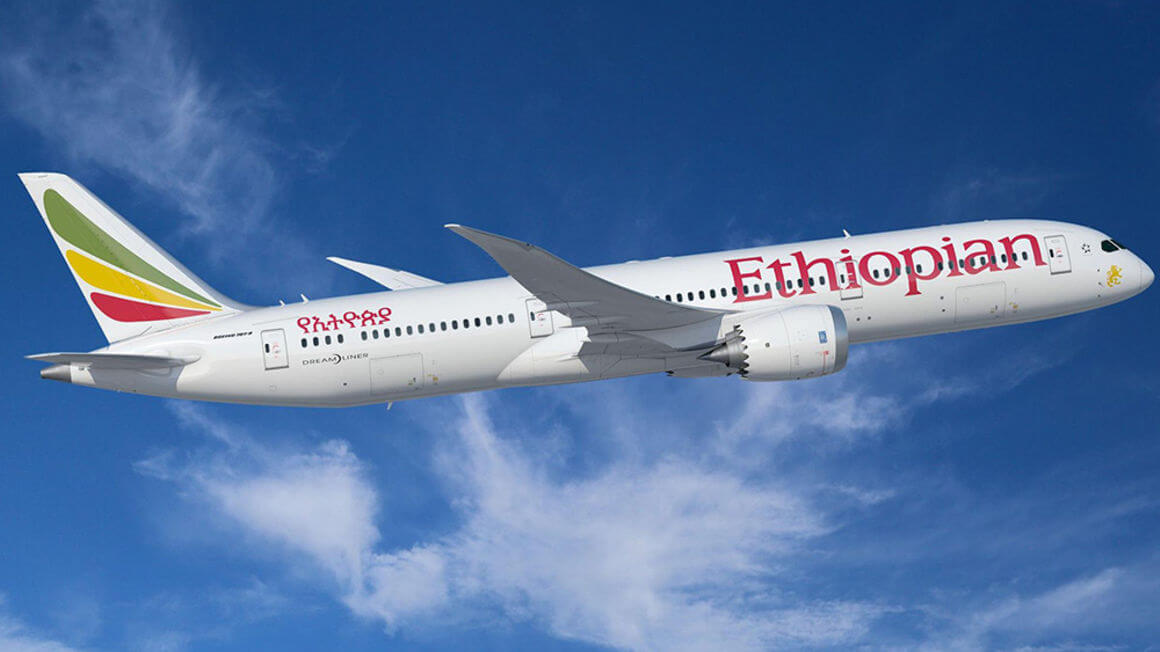
Our Projects are
Transforming African Trade
Quick Contacts
2nd Floor, Fidelity Insurance Centre Waiyaki Way, Westlands

Summary
The battle for the air freight market share among African airlines is intensifying, thanks to Covid-19 disruptions that have driven up ocean freight rates. Many airlines are now upgrading their fleets and expanding destinations as shortage of containers in the region continues to bite.
In its latest market summary, the International Air Transport Association (IATA) said demand for air freight has stayed above pre-crisis levels.
“African airlines saw international cargo volumes increase by 26.7 percent end of last year, which is the largest increase of all regions. International capacity was 9.4 percent higher than pre-crisis levels, Africa is the only region in positive territory, albeit on small volumes,” read part of the IATA market summary.
Shippers Council of East Africa Chief Executive Gilbert Lagat said, apart from cost and efficiency, time to receive consignments has boosted the air freight business considering persistent road and ocean delays.
“Importers consider time, cost and efficiency. If the consignment reaches on time at a moderate cost, importers will consider and with the increasing trade barriers at the borders, air freight is the best bet,” said Mr Lagat.
IATA director general Willie Walsh, said data points that the cost-competitiveness of air cargo relative to that of container shipping has improved over recent months.
“Improved competitiveness compared to sea shipping should continue to make air cargo a bright spot for airlines while passenger demand struggles with continued border closures and travel restrictions,” said Walsh.
Kenya Airways and Ethiopian Airlines have already drawn up strategies to take advantage of their respective airports which are investing on cargo segments.
Early this month, cargo operations from Kenya’s Kisumu International Airport were formally launched opening up new markets for farmers to international markets.
Kenya Airways (KQ) Chief Executive Allan Kivaluka said the airline will provide a capacity of six tonnes of cargo daily from the region destined to United Kingdom.
“KQ has strategy to venture more into cargo freight and we are committing to introduce a fully-fledged freighter to Kisumu once the region is able to produce more cargo,” said Kivaluka.
He added, “KQ plays key role in supporting trade efficiency by connecting the fresh produce industry from this region to the rest of the world.”
Kisumu International Airport has expanded its cargo handling and cold storage facility with expectations the airport will be able to handle more cargo from the region. The cold storage facility will go a long way in enabling the airport to establish a full-fledged Cargo Division.
To improve efficiency in air freight cargo, Ethiopian airline Cargo and Logistics Services has added an online cargo reservation platform as it continues to develop its digital offering. The new platform enables customers to check flight schedules, space availability, loadability of freight and make real-time bookings.
The firm has also launched a mobile app offering real-time shipment updates and allows users to check flight schedules, submit enquiries, receive notifications when the shipment is ready, book charter flights and track shipments.
Ethiopian Airlines CEO Tewolde GebreMariam said they are committed to start walking the long walk of taking out paper from entire air cargo process by digitalising the logistics value chain.
“Taking out paper from logistics value chain is not only convenient and hassle free service for customers but also it delivers more efficient operational excellence and achieves long term sustainability goals,” said Gebremariam.
The airline’s online booking platform will be crucial in empowering direct cargo customers and forwarders with reliable access to cargo capacity inventory.
“Strong demand for air cargo is helping Ethiopian Airlines build capacity and profit. We are currently operating close to 70 percent of our pre-pandemic capacity,” he added.
Airfreight market rates have risen due to e-commerce growth and increased demand for air cargo due to shipping delays.
Ethiopian has invested heavily in infrastructure, equipment, people, system and processes to enhance its pharmaceutical handling capabilities.
Cold storage areas in these freight facilities are dedicated to the handling of pharmaceuticals and healthcare products and equipped with dedicated climate control between -30 degrees Celsius to +25 degrees Celsius.
These facilities are monitored through a smart web-based system that allows real-time management of all zones and is capable of triggering SMS, phone call and email actions in case of an emergency.
The strategic and geographical location of Ethiopian’s home base airport in Addis Ababa makes it preferable for transporting highly temperature-sensitive products with year-round natural temperature stability ranging between +15 degrees Celsius to +25 degrees Celsius, which will play an important role to minimise potential temperature deviation through the value chain.
Read original article
Disclaimer: The views and opinions expressed in this article are those of the authors and do not necessarily reflect the official policy or position of TradeMark Africa.